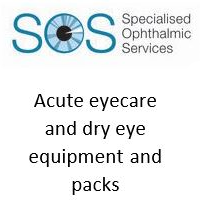Charities & Support Groups
Eye cancer charity welcomes new Community Urgent Eye Service (CUES)
Eye cancer charity welcomes new Community Urgent Eye Service (CUES)
More babies and children with the rare eye cancer retinoblastoma took over six months to be diagnosed in 2020 than any other year since 2012.*
Figures released today by UK charity the Childhood Eye Cancer Trust (CHECT) show that almost a quarter (24%) of children diagnosed with retinoblastoma in 2020 took over six months to be diagnosed. In the previous eight years, the average has been 9%.
Just 35% of children fell within the recommended two-week referral period, the lowest figure since 2012.
Retinoblastoma (Rb) is a rare form of eye cancer found in babies and children up to the age of six. Around one child a week is diagnosed in the UK.
CHECT is therefore welcoming the newly-launched NHS Community Urgent Eye Service (CUES) as an additional potential route to diagnosis for concerned parents. CUES is a fully-funded service which provides urgent assessment, treatment or referral by a local optometrist for sudden onset eye problems. More urgent cases will be seen within 24 hours.
Parents of babies and children displaying any of the signs and symptoms of retinoblastoma can contact the CUES direct to ensure an urgent, detailed eye examination.
Find your local CUES service https://primaryeyecare.co.uk/find-a-practice/
Patrick Tonks, CEO of CHECT said: “We know there have been huge pressures placed on healthcare professionals this past year, but the delays in diagnosis we have seen in 2020 have the potential to seriously impact the prognosis for babies and children with eye cancer. We welcome the new Community Urgent Eye Service as a potential route to alleviate some of the current pressures on the health service, and ensure babies and children with retinoblastoma undergo a detailed examination as soon as any symptoms are observed, followed by an urgent onward referral where necessary. In areas where CUES is not yet in place, we would recommend parents contact their GP or local optometrist in the first instance.”
Any optometrists examining a child presenting with a symptom of retinoblastoma should bear in mind that around a third of Rb cases have a squint as a presenting symptom. It is therefore especially important with all new squints that if retinoblastoma cannot be confidently ruled out, an urgent referral must be made.
The main signs and symptoms of retinoblastoma are**:
Leukocoria / white eye (either seen in a photo or in the eye itself) 71%
Strabismus / squint – 34%
Change in colour of iris – 10%
Loss of vision – 8%
Redness or swelling without infection – 7%
Roaming eyes / child not focusing – 7%
Absence of red eye – 1%
For more information on retinoblastoma go to www.chect.org.uk/optician.
World Retinoblastoma Awareness Week runs from 9-15 May 2020.
























